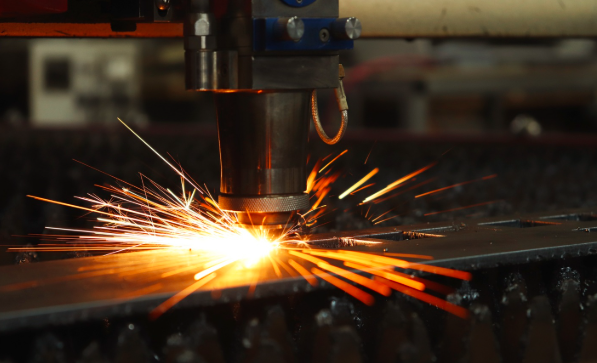The Value of Precision Machining Service in Modern Manufacturing

A Crucial Element in Production
Every component, no matter how simple or complex, must meet strict specifications and function flawlessly. Precision machining service plays a critical role in achieving this. It offers the ability to fabricate highly accurate and detailed parts from a wide variety of materials using advanced equipment and expert craftsmanship.
Understanding Precision Machining
The aim is to achieve parts with extremely tight tolerances, often down to a few microns. This process is not limited to shaping the exterior of a part—it also involves boring, drilling, threading, and engraving, all performed with exact specifications.
These machines are guided by pre-programmed software, allowing for consistent results across large production runs while maintaining exceptional detail.
Industries That Rely on It
A broad range of industries depend on precision machining service to meet their production goals. In aerospace, machined parts like turbine blades, structural brackets, and landing gear components must meet rigorous safety standards. The slightest deviation can compromise the integrity of an aircraft.
The medical industry also requires precision components such as surgical instruments, orthopedic implants, and diagnostic equipment.
Even consumer electronics—such as smartphones and laptops—rely on tiny, intricately machined metal parts to ensure their performance and reliability.
Equipment Used in the Process
The success of any precision machining service largely depends on the equipment it employs. The most common machines include:
- CNC Mills: These are used to shape complex parts through multi-axis motion and precise cutting.
- CNC Lathes: Ideal for creating cylindrical parts with high accuracy.
- Wire EDM (Electrical Discharge Machining): Suitable for cutting hard metals and creating intricate shapes.
In addition to the machines, software plays a key role. CAD (Computer-Aided Design) and CAM (Computer-Aided Manufacturing) programs enable engineers to create and execute complex geometries with remarkable accuracy.
The Skill Behind the Machines
While technology drives much of precision machining, human expertise remains essential. Skilled machinists and engineers understand how to select appropriate tools, adjust machine settings, and interpret blueprints. They’re also responsible for quality control, inspecting each part to ensure compliance with technical requirements.
Experienced operators can anticipate and prevent problems before they occur, saving time and reducing waste. Their knowledge of materials, machine behavior, and manufacturing principles is irreplaceable in maintaining consistent production standards.
Materials Commonly Used
A wide range of materials can be machined with precision. These include:
- Metals: Aluminum, steel, brass, titanium, and copper are common for structural and mechanical parts.
- Composites and Ceramics: For specialty uses in medical and aerospace applications.
Each material poses different challenges. Hard metals wear tools faster and may require slower machining speeds, while softer materials risk distortion if not handled carefully. A quality precision machining service understands these nuances and adjusts processes accordingly.
Read also: Trusted Partner in Laser Marking Solutions
Benefits of Using Precision Machining
The advantages of utilizing a precision machining service are numerous and impactful:
- Extreme Accuracy: Tolerances as tight as ±0.001 mm are achievable, ensuring perfect part fit.
- High Repeatability: Parts can be replicated precisely across large batches.
- Reduced Waste: Accurate machining minimizes material loss and rework.
- Increased Efficiency: Automation and streamlined processes result in faster turnaround times.
- Superior Finish: Precision methods produce smooth surfaces and refined edges, often eliminating the need for secondary finishing.
Applications in Custom Manufacturing
In many cases, manufacturers need custom solutions rather than mass-produced components. Precision machining services can provide tailor-made parts based on unique design requirements. This is especially helpful for startups, R&D departments, and businesses producing specialized equipment.
Whether it’s a custom motor housing, a unique gear assembly, or a specialized tool, precision machining allows for flexible and adaptive production without compromising on quality.
The Role of Quality Control
- Visual Inspection: Checking for visible flaws or inconsistencies.
- Dimensional Checks: Using calipers, micrometers, and gauges to ensure dimensions match design specifications.
- CMM (Coordinate Measuring Machine): For highly accurate three-dimensional measurements.
- Surface Testing: Assessing finish and smoothness, which can affect part performance.
Many providers also follow international quality standards such as ISO 9001, ensuring processes are continuously monitored and improved.
Conclusion
Precision machining service is more than a production method—it’s a pillar of modern manufacturing. By delivering parts with exceptional accuracy, repeatability, and finish, it helps companies across diverse sectors maintain high standards of quality and performance.
Whether you’re designing the next breakthrough medical device or assembling advanced aerospace systems, partnering with a trusted precision machining provider can make the difference between success and failure. As technology advances and demand grows, precision machining will remain central to creating products that power our industries, improve lives, and shape the future.





